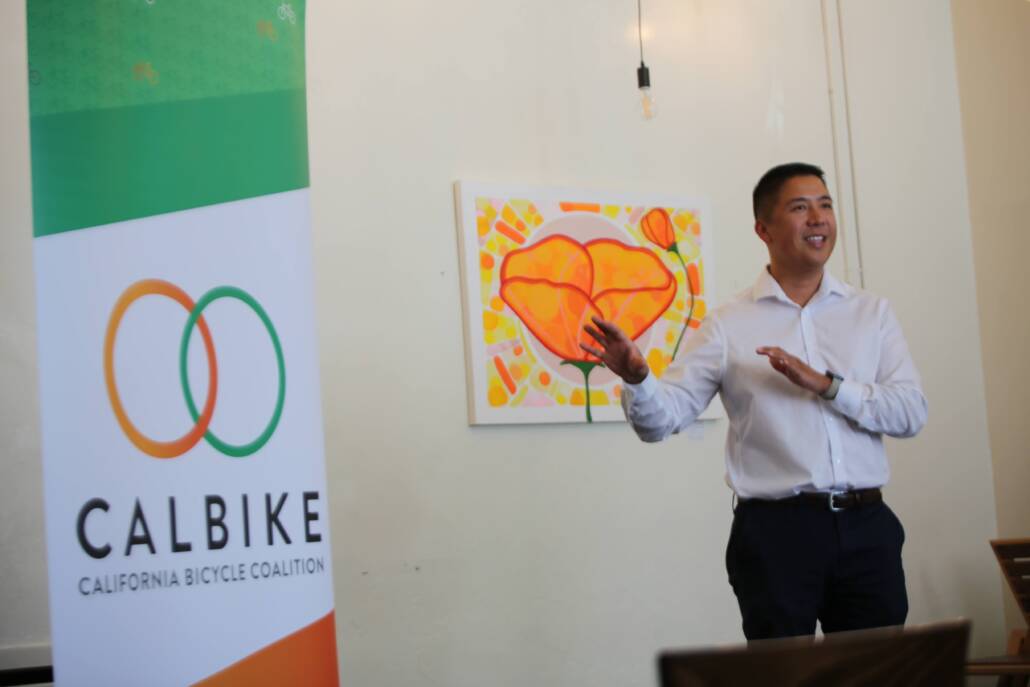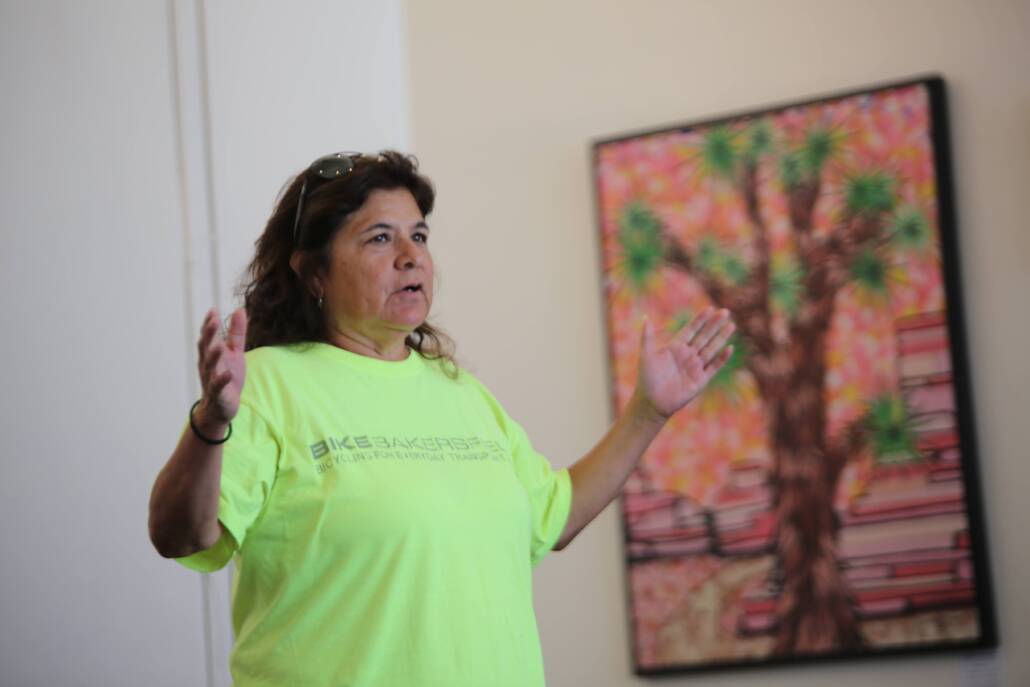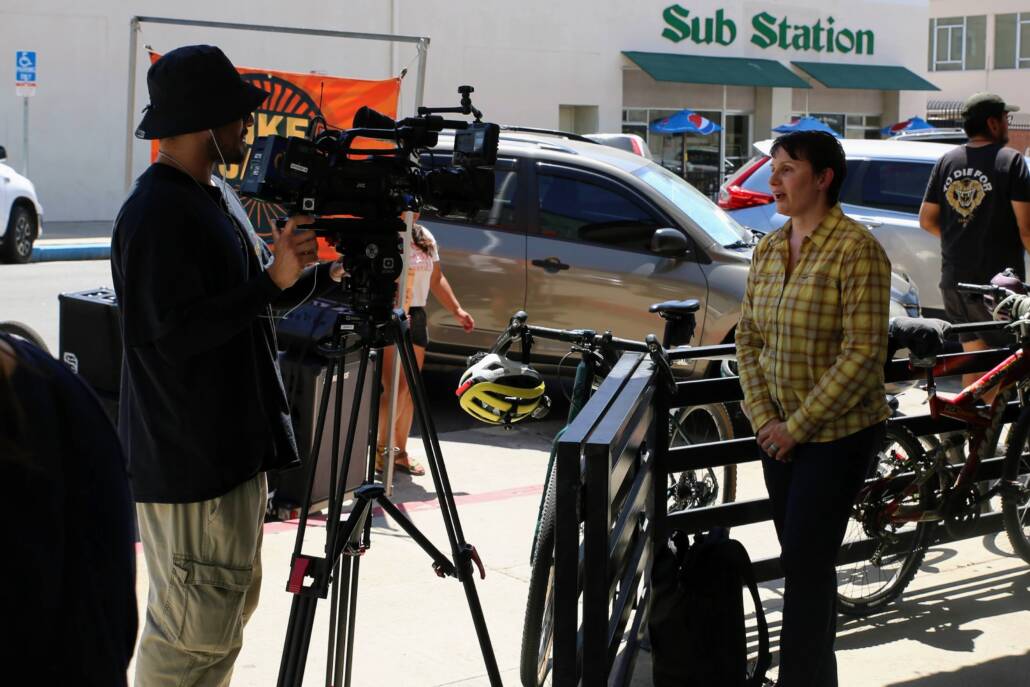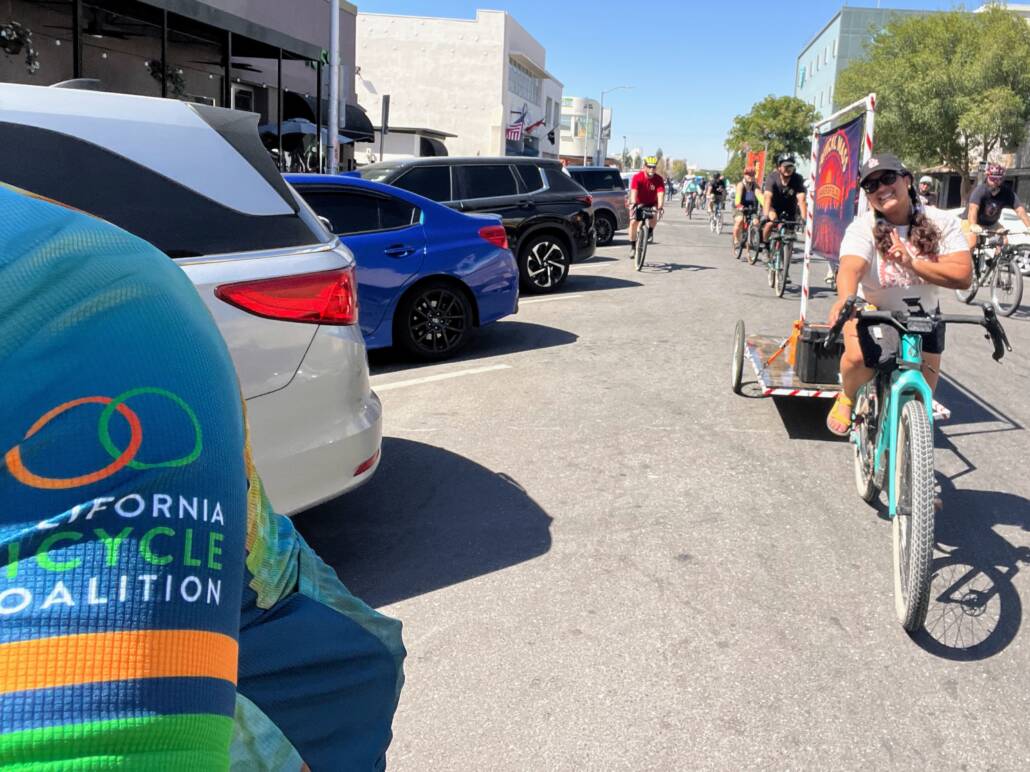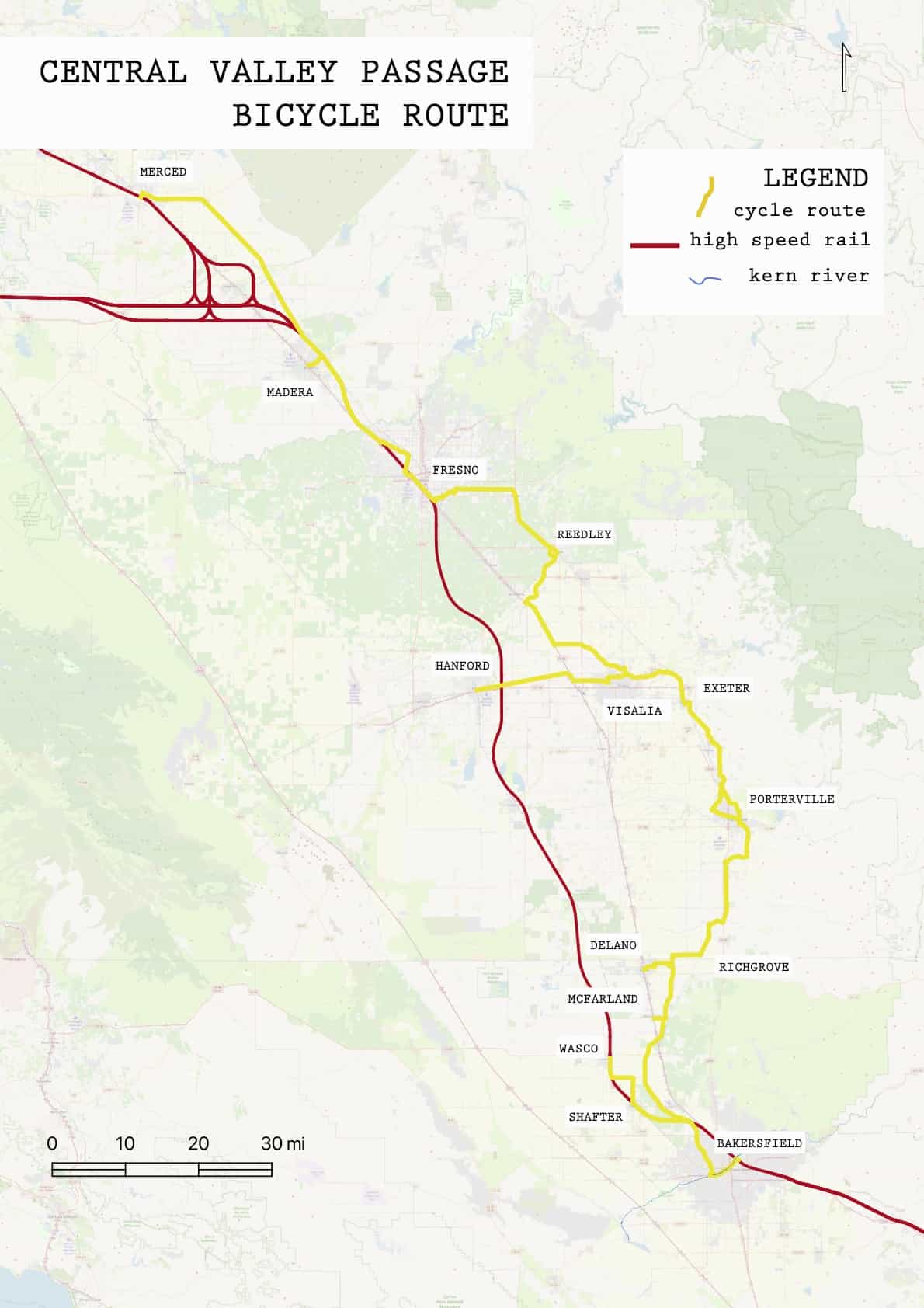On May 27, 2025, the Kern County Grand Jury released a preliminary report titled The Proliferation of Bike Lanes: Whose Road Is It? The grand jury had been asked to “examine the impact of bike lanes in Bakersfield.” It returned findings that questioned the value of installing bike lanes in Bakersfield and accused the consulting firm that developed the city’s bike plan of being “biased toward bicycles.”
This is a questionable use of the grand jury process to circumvent California’s climate goals for the transportation sector and the rightful role of local government officials to make transportation plans for their city. Here’s what we know about the grand jury report and what’s next.
The Civil Grand Jury
Every county in California convenes an annual civil grand jury for the express purpose of investigating local government. Unlike federal grand juries, which generally determine whether there’s enough evidence to charge someone with a crime, California’s Civil Grand Juries may investigate noncriminal matters.
According to Kern County’s website, a grand jury can review complaints about “inefficiencies and misconduct in government.” Based on the report, bike lanes appear to fall into the inefficiency bucket.
The complaint process is confidential, so the report doesn’t state who requested that the grand jury investigate the “proliferation of bike lanes” in Bakersfield. Citizens can request civil grand jury investigations, as can elected officials or government staffers.
Findings: “conflict of interest” and cost/benefit analysis
The findings of the four-page report include benefits of biking, such as a 53% reduction in injuries after bike lanes are installed, the half ton of CO2 that switching from a car to a bike takes out of the air annually, and the fact that bike lanes are cheaper to install and maintain than car lanes.
The negative findings can be summarized as:
- It’s too hot to bike in Bakersfield in the summer.
- The air is too polluted in the region, so everyone should stay inside a car.
- H Street in Bakersfield can’t afford to lose a traffic lane to accommodate a bike lane because nearby streets are too congested.
- The city should have made sure that the consulting firm it hired to create its Bicycle & Pedestrian Safety Plan didn’t have a “predetermined goal of moving many people from cars to bicycles.”
The last point appears to be directed at Alta Planning + Design, which prepared Bakersfield’s most recent bike and pedestrian plan in 2020. The grand jury seems to have found that specializing in active transportation planning is a disqualification from developing such a plan.
The issue with H Street is oddly specific in a report that otherwise more broadly questions the decision to add infrastructure that makes it safer to ride a bike in Bakersfield.
The complaint about air quality is self-contradictory. The solution to polluted air might be to ride a bike instead of, for example, driving a car and…polluting the air. And, while heat is certainly a factor in the comfort of bike riding, the grand jury seems to assume that everyone riding a bike in Bakersfield could drive in an air-conditioned car if they chose. The jury didn’t consider the fact that some Bakersfield residents don’t own or can’t afford a car, so making biking safer is critical for their mobility. It also doesn’t factor in the rising number of e-bikes, which can make it easier to bike in hot weather by doing some of the work. It also doesn’t consider that many people ride bicycles in other communities that experience summer heat.
The civil grand jury requests that the City of Bakersfield, by July 1, 2025, amend its RFP materials to “better identify potential conflicts or biases of proposals.” We hope this will apply to any road construction or maintenance contracts as well. Those shouldn’t go to companies that favor infrastructure for motor vehicles.
Starting September 1, 2025, the grand jury wants Bakersfield to conduct automobile and bicycle counts before constructing new bikeways. This sounds like a way to support the argument that “no one bikes here” to avoid putting a bike lane on a roadway that’s too dangerous for most bike riders until the bike lane is installed. It’s a circular argument that has no good outcome for people who want or need to get around by bike.
The final recommendation is to develop a cost/benefit model for bike lanes by September 1, 2025. Presumably, this will calculate the greenhouse gas savings, which the report deemed too small to justify bike lanes. The grand jury obviously didn’t realize that this model already exists: Caltrans has developed a life-cycle cost/benefit analysis model that can be applied to any transportation project.
There seems to be a bias in this report against the utility of bike lanes. It’s a familiar stance, one every bike advocate has witnessed at civic meetings when new bike infrastructure is proposed. The civil grand jury appears to have made its findings and recommendations without considering all the data relevant to active transportation planning decisions. That’s not surprising; they’re probably not urban planning experts.
What happens next
The Bakersfield City Council has 90 days to submit a response on the findings and recommendations in the report to the presiding judge of the Kern County Superior Court and the foreperson of the civil grand jury. The Bakersfield Public Works Department has 60 days to submit responses to selected findings and all three recommendations.
It’s a stretch to argue that decisions about creating and implementing a bike plan (something required to access certain types of transportation funding) are not within the purview of the Bakersfield City Council or Public Works Department, even if some residents disagree with the outcome. Grand juries are designed to look for fraud, malfeasance, and mismanagement. None of that seems to be present here.
We hope the city council and public works department will stand up for safe streets for all Bakersfield residents. If you live in Bakersfield, let your city council member know you expect a strong rebuttal to the biased report on bike lanes. Here’s the letter CalBike sent to Bakersfield’s mayor, vice mayor, and city council.
